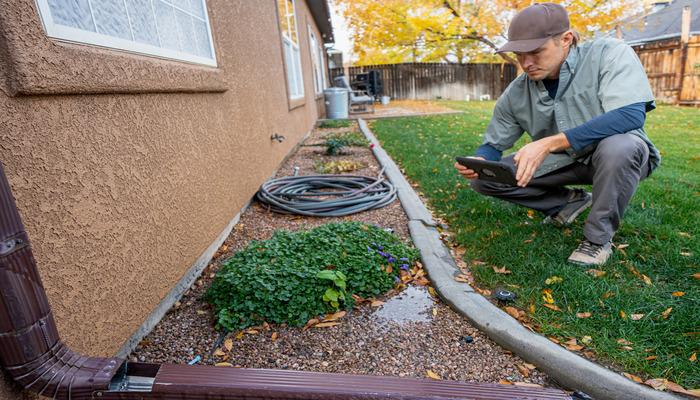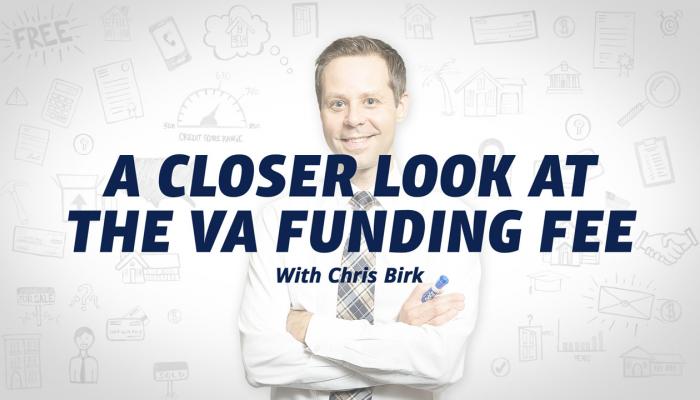Your VA loan is a lifetime benefit. It’s something you’ve earned that you can use over and over again, whether it’s to refinance your existing mortgage or to buy a new home.
When the time comes to reuse this benefit, things might look different from the last time. Sometimes that’s because of legislative or guideline changes that affect the home loan program. In other cases, it’s because your circumstances and needs as a homeowner have changed.
Here’s a look at four ways your next VA loan might look different.
You still have your old VA loan
VA loans are designed to purchase primary residences that you live in full time. But you can live in the home for a while and then look to rent it out and buy again – often with another VA loan. Not everyone is cut out to be a landlord, but having a long-term rental presents a unique investment opportunity for some Veterans.
There are definitely financial, insurance and legal considerations to keep in mind when you’re turning your primary residence into a rental. You’ll also have diminished VA loan entitlement if you’re holding onto your old property and trying to buy a new one, which can mean you’ll need a down payment.
You also won’t likely be able to count the projected rental income from your old house toward qualifying for the new home. Policies and guidelines can vary by lender.
Juggling multiple VA loans at the same time isn’t something every Veteran takes on. But if the idea of rental income is intriguing, talk with a Veterans United loan specialist about your specific situation when the time comes.
No more loan limits
Depending on when you closed on your current VA loan, you might have encountered the VA’s loan limits. For years, these county-level limits helped determine how much a Veteran could borrow before they needed to make a down payment.
Legislation that took effect at the start of 2020 removed these limits for qualified borrowers. These limits will no longer apply for most Veterans, no matter how much home they’re looking to buy. The new rule of thumb is: If you can get a lender to make the loan, the VA will back it, all without a down payment.
That means if you can afford a $1 million loan and find a lender that’ll make it, you can snag it with $0 down.
Veterans with diminished entitlement must still factor in the loan limits when using the benefit. So if you’ve defaulted on a previous VA loan or are looking to hold onto your current one and buy again, you might need a down payment depending on where you’re buying next.
Funding Fee changes
The VA Funding Fee is a charge that applies to every VA-backed loan, purchase or refinance. The fee does directly to the government and helps keep the loan program running. The fee could look different the next time you use the benefit, depending on a few different factors.
The funding fee is a bit higher after the first time you use the benefit, unless you’re getting a VA Streamline refinance. If you’re buying again or getting a VA Cash-Out refinance, expect to pay a higher fee, although remember you can always finance this fee into the loan.
It’s worth noting that recent changes to the program created some uniformity for Guard and Reserve Veterans, who had a slightly different fee structure before this year. Now, these Veterans pay the same fees as Regular Military borrowers.
It’s also possible you won’t pay this fee at all on your next VA loan. There are exemptions to the fee, primarily for Veterans receiving compensation for a service-connected disability.
Veterans who paid the fee on their last loan but have since received a disability award likely won’t have to pay this fee. Talk with a Veterans United loan specialist for more details.
You’re making a down payment
The signature benefit of the VA loan is the $0 down payment advantage. Nationally, about 8-in-10 Veterans purchase with no money down. But you always have the option to make a down payment, and that can be easier when you’ve got proceeds from a home sale.
Some Veterans might make money on the sale of their current home and turn right around and plow that money into a down payment. Building that instant equity means borrowing less, which means a lower monthly mortgage payment. Making a down payment can also lower your funding fee percentage if you aren’t exempt.
But every buyer’s situation is different. Whether you make a down payment on that next purchase is typically up to you, and that’s a significant benefit.
Answer a few questions below to speak with a specialist about what your military service has earned you.
Related Posts
-
 VA Appraisal RequirementsExplore everything a homebuyer needs to know about the VA appraisal, including the process, property requirements, pitfalls, termite inspections, water quality checks, appraisal fees, challenging a low appraisal and the differences between the VA appraisal and a home inspection.
VA Appraisal RequirementsExplore everything a homebuyer needs to know about the VA appraisal, including the process, property requirements, pitfalls, termite inspections, water quality checks, appraisal fees, challenging a low appraisal and the differences between the VA appraisal and a home inspection. -
 2024 VA Funding Fee: Complete Explainer with Charts and ExemptionsThe VA funding fee is a governmental fee required for many VA borrowers. However, some Veterans are exempt, and the fee varies by VA loan usage and other factors. Here we explore the ins and outs of the VA funding fee, current charts, who's exempt and a handful of unique scenarios.
2024 VA Funding Fee: Complete Explainer with Charts and ExemptionsThe VA funding fee is a governmental fee required for many VA borrowers. However, some Veterans are exempt, and the fee varies by VA loan usage and other factors. Here we explore the ins and outs of the VA funding fee, current charts, who's exempt and a handful of unique scenarios.


